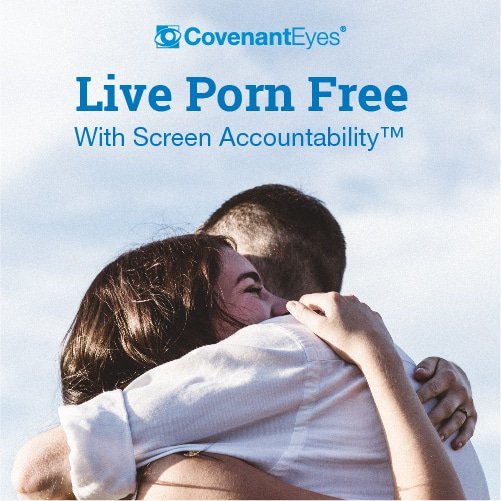Sheila Wray Gregoire's Blog, page 77
August 12, 2019
Reader Question: Help! My Husband Wants Sex Everyday!
What do you do if your husband wants sex everyday, but isn’t interested at all in how you feel about it or how you feel during it?
On Mondays I like to take a reader question and take a stab at answering it, and I thought that, since I hadn’t done an Ask Sheila video in a while, I’d try to answer it in video format!
Here’s what she asked:

Reader Question
My husband wants it every day. Really. Like 350 days a year is what I can honestly say. I am just a vessel… like a cigarette butt container outside a door. I know he needs it. I know that he’s wired differently than I. I don’t say no unless I get a chance to fall asleep when I’m sick or something. I’m so tired. I want to feel loved, but I’m so busy making sure everyone else’s needs are met. I’m not even good at having sex any more. I just make sure there is lube when I’m ready for bed because that’s when I know he will want it. It isn’t fulfilling. I have been to counseling. I asked him to go to counseling with me, but he would not go back because he said the woman didn’t even know him and implied that he had a sex addiction. Maybe he does. He loves the verse about my body isn’t mine, but he never gets to the end of that verse. I am trying. I am praying. How do I become a better wife? How do I enjoy sex? What do I do when he gets so mad if he doesn’t get sex very day?
Here’s my answer (below the “My Latest Videos” module):
The problem here is not really that the husband wants sex everyday.
The problem this reader was having is more that her husband was seeing sex as entirely one-sided. It’s like I talked about in the post on how we need a new definition of sex–we think that sex i “man puts penis into woman’s vagina and moves around until he climaxes.” That definition, however, means that she’s quite irrelevant to the whole process. She can lie there, and experience nothing, and it’s still sex.
Why would some men start to think this way about sex?
All kinds of things contribute to it. Some men honestly don’t understand that sex feels differently for women–that women need foreplay; that sex is about more than the physical. Some men have been watching porn so long that they see women as sexually just being there for them to use. One of the effects of porn is to make sex not intimate at all, but more about taking. And sometimes we just grow up in this culture seeing sexual fulfillment in an entirely selfish way–what I want, I deserve to get.
But sex is supposed to be so much more than just a physical thing. It’s supposed to be a mutual joining, where it’s about “knowing” each other, as the Bible talks about it. Treating her like an object wrecks everything.
But as I also said in the video, sometimes women are the ones who make sex one-sided.
Recently a woman left this comment on the blog:
I think it’s simple. God made orgasms for men and a wives duty is to make your spouse orgasm with your full participation. Women don’t even need orgasms to conceive so they arent relevant for us. I focus solely on my husbands fulfillment and God has blessed us profoundly.
So many men are here, on this blog, because in their marriages, it’s the wife who just can’t get excited about sex or understand that pleasure was meant for her, too. Good guys actually want to bring their wives pleasure, and when the wives consistently say, “it’s okay, I just want you to feel good,” these men feel empty.
When we grow up with the messages from the church that sex is about giving him what he needs, it’s easy to feel like sex isn’t for us. But that’s not healthy. So check out these posts, and then invest in something like 31 Days to Great Sex so that you can start a great challenge with your spouse on figuring out how to make sex for both of you!
Read the Do Not Deprive Series:

Do Not Deprive: Are Women the Ones More Likely to Be Deprived?


Why We Need a New Definition of Sex

10 Times It’s Okay to Say No to Sex
Do you yearn to have a more meaningful–and fun–sex life?

Check out my 31 Day challenge that you do with your spouse. Super easy–just read a few pages a night and do what it says. Learn to talk more, flirt more, be more affectionate, spice things up, deal with baggage, and so much more!
No blaming. Just solutions–and a whole lot of fun!
Let's try it!
Why do you think people get this idea that sex is one-sided–and that’s how it’s supposed to be? How can we fight it? Let’s talk in the comments!

Author
Social Media
Sheila's Best Posts
Books
Courses
Freebie
 Sheila Wray Gregoire has been married for 27 years and happily married for 22! She loves traveling around North America with her hubby in their RV, giving her signature "Girl Talk" about sex and marriage. And she's written 8 books. About sex and marriage. See a theme here? Plus she knits. Even in line at the grocery store.
Sheila Wray Gregoire has been married for 27 years and happily married for 22! She loves traveling around North America with her hubby in their RV, giving her signature "Girl Talk" about sex and marriage. And she's written 8 books. About sex and marriage. See a theme here? Plus she knits. Even in line at the grocery store. Find Sheila Here:
Find Sheila Here:YouTube
Sheila's Favorite Posts on To Love, Honor and Vacuum:
10 ways to initiate sex
10 Effects of Porn on Your Brain, Marriage, & Sex Life
Why So Much Marriage Advice is So Trite
How can Sex be Hot and Holy at the Same Time?
Check out some of Sheila's Books:
The Good Girl's Guide to Great Sex
31 Days to Great Sex
9 Thoughts That Can Change Your Marriage
To Love, Honor, and Vacuum
Check out Sheila's Courses:
The Boost Your Libido Course
The Whole Story: Talking to Your Daughter about Sex, Puberty, and Growing Up
The FREE Emotional Intimacy E-Course
Are you ready to take your marriage to the next level?
Sign up for our emails and get access to the TLHV free marriage and parenting resource library. We have over 25 downloads and are constantly adding more. Sign up here!
August 9, 2019
Wives: You Are Not to Blame for Your Husband’s Porn Addiction
Are wives to blame if their husbands use pornography?
One of the things we’ve been talking about on the blog lately is that you are not to blame if your spouse has an affair. You may have contributed to serious marriage problems. You may even have been the biggest cause of a rift in your marriage. But no one can make another person have an affair, and the choice to have that affair is still on them. Repenting of that affair is necessary before you can start to address marriage problems.
There’s another issue, though, that pops up a lot when we’re talking about who is to blame for sin, and it’s the topic of porn use.
I was helping another author work on a marriage book recently, and he asked me to take a look at a few chapters. In those chapters he had several stories of men who had turned to pornography because they were so sexually frustrated because their wives wouldn’t have sex. The author was warning women how much men need sex, and how much of a temptation porn will be if their husbands aren’t kept sexually satisfied.
Now, this does have a grain of truth. When we do not make love with relative frequency, we can make our husbands feel rejected, unloved, and unwanted. And that can make the temptation to turn to porn a lot stronger because turning to us for sex is more difficult.
However (and this is a big however), in most marriages, that’s not the dynamic that’s at play when it comes to pornography, for these reasons:
Most porn use pre-dates the marriage.
What he said may have been true for couples in their late 40s and 50s. But for most younger couples, internet porn use predated the marriage. Most guys who use porn do not start AFTER they’re married. They started before. So to say to a wife that she’s causing her husband’s porn use simply doesn’t always line up with reality. How could she cause something that started 11 years before he even met her?
Porn use programs a man to find his wife inadequate
And that porn use rewired their brain so that what was attractive was an image or a video, rather than a relationship. It wouldn’t matter if she were the #1 supermodel in the world; she’s not pornography, and so she’s not enough for him. Porn also rewires the brain to want DIFFERENT, not just more, so what becomes arousing is always different stimuli. No matter how hard we try, we can’t be different. And finally, porn use makes sex into a self-focused physical thing, not a relational, mutual experience focused on both intimacy and pleasure. In essence, she becomes his sex toy.
If this is how he has trained himself to think of sex, then she can’t compete, and she can’t be responsible for his porn use.
I’ve got more on the 10 effects of porn on his sex drive and his brain right here.
In many marriages where porn use is frequent, the problem is the husband rejecting sex, not the wife
Additionally, porn use is one of the biggest reasons for men’s libidos to fall. It also is one of the biggest contributors to erectile dysfunction. Porn robs a man of normal sexual desire for his wife, and channels it all into porn. I frequently hear, for instance, of husbands who will masturbate frequently in the shower, but reject sex with their wives.
Porn use often channels a husband’s sexual preferences in weird, dangerous, or degrading directions
Sometimes the reason that women turn down husbands who want sex when they watch porn is that husbands end up wanting sex that is entirely one-sided. Frequently they demand oral sex but reject intercourse, or they want things that wives consider very degrading. When women hear the message that you are causing your husband’s porn use by rejecting sex, but the sex that he wants is selfish and perverted, that’s a very harmful message.
A better message is this one: Work on developing a healthy view of sex together, and then pursue it!
All of us can have sexual issues. Maybe he used porn a lot and has to retrain his brain to find the relationship and intimacy exciting. Maybe she feels a lot of shame about sex and has been withholding sex for a long time. Whatever it may be, they can work together for a healthy sex life.
However, like recovery from an affair, it must start with the porn use ending. A healthy sex life is built on intimacy and trust. You can’t have either if he’s watching porn. Even if she’s been withholding sex, and even if she’s left him feeling neglected, you cannot build a healthy sex life until he is dedicated to quitting porn. And turning to porn is still a sin that she did not cause. It was his own choice, and it needs to stop–even if she also has things that she needs to fix.
Here are 4 steps you must take if your husband uses porn.
To the husbands: I understand if you’re frustrated, but the porn needs to stop
If you’re the husband in the situation, and you do really want a great sex life with your wife, and you’re just really frustrated, I do hear you. I know what a lonely place that can be. But you can’t build a great sex life on the back of pornography. It needs to stop first. She won’t feel safe, and sex won’t feel intimate, and you won’t be able to be fully vulnerable with her when pornography is in the picture.
I highly recommend getting Covenant Eyes for screen accountability. It filters out porn, taking away that temptation that you feel when pornography is only a split second mouse click away. You can install it on all of your computers and devices, and it can protect your children, too. Remember that kids are first exposed to porn, on average, at age 11. This needs to stop before porn wraps its tentacles around your kids, too!
And when you click using my link, or use the code TLHV, you get your first month free, so you can test it out. Your marriage, and your family, can experience real freedom from porn.
Find freedom from porn!

Your marriage, and your thought life, do not need to be held captive to pornography.
There is freedom.
Beat porn–together!
I want to find freedom!
Even if you do that, though, it doesn’t mean your sex life will automatically get better.
You have to rebuild, and a lot of that includes two things: understanding what sex is supposed to look like (since porn warps everything!), and figuring out how to communicate and talk through this better together. I’d recommend working through 31 Days to Great Sex, which helps you build a sex life from the ground up, one step at a time, focusing on intimacy, affection, as well as the physical aspects of sex.
Need an easier way to have these conversations?

31 Days to Great Sex guides you through exercises so that you can talk about libido, frequency, intimacy, in a low-stress, easy way.
No blaming. Just solutions–and a whole lot of fun!
Let's try it!
Also read this series on how to change how we see sex so that it is mutual and intimate, and so that no one feels like a sex object.
Previous Posts on how Sex Should Be Mutual:

Does “Do Not Deprive” Apply to Wives More than Husbands?


10 Times It’s Okay to Say No to Sex

We Need a New Definition of Sex (that’s mutual!)
That’s really a better message to give to women if you want to encourage them to commit themselves to great sex. It’s much healthier than just, “if you don’t have sex he’ll watch porn!”
When we were discussing if you were to blame if he cheated, a commenter left a link to a wonderful letter to wives of porn users.
I thought it was very helpful, and very hopeful, and I think it brings healing to women whose husbands have been using porn. It says the things that we all need to hear: that it is not our fault; that they have broken covenants; that it has been a terrible betrayal.
I want to point you to it today, because I know many of you need to read it:

From An Open Letter to Wives of Porn Addicts by Jay Pyatt
On behalf of myself and the other husbands addicted to porn, I am sorry. We have given your place to another and it is wrong. You knew some men struggle with this; you just didn’t think it would be your man. There are no justifications for our actions. We try to justify, but these are only excuses.
I am sorry we’ve blamed you for our addiction. Instead of owning our actions, we have gotten defensive and angry. In time we may realize how far away this is from the truth. You’re not to blame. It is not your fault. We chose to turn away from you and God to follow the lust of our hearts.
I know this is painful for you. The person who stood before many people and professed his faithful love at the altar has betrayed your marriage through porn, lust, and lying. You did nothing to deserve this behavior, no matter what he tells you. We lied, thinking we were protecting you from a situation we couldn’t handle on our own. Always thinking we’d get clean, we just needed a little more time. But the lies still hurt and the problem still grew–and damaged–like a cancer.
Porn is not harmless. It seriously damages a person’s sexual arousal cycle, sexual response cycle, and libido. It has affected so many men, and now it’s affecting so many women, too. Let’s start speaking more loudly about the harm it does, rather than considering it an inevitable response to sexual frustration. And maybe then we can have healthier conversations about it!
What do you think? Do we talk about porn in a healthy way? What’s a better way to tackle it? If you’re a wife of a porn user (or the husband of a porn user), what message do you need to hear? Let’s talk in the comments!
Found this post helpful? You may also benefit from:

4 Things You Must Do if Your Husband Uses Porn

10 Things to Know About How Porn Affects Your Sex Life and Marriage

Is Porn Stealing His Sex Drive?

You Can Recover From Your Husband’s Porn use
Author
Social Media
Sheila's Best Posts
Books
Courses
Freebie
 Sheila Wray Gregoire has been married for 27 years and happily married for 22! She loves traveling around North America with her hubby in their RV, giving her signature "Girl Talk" about sex and marriage. And she's written 8 books. About sex and marriage. See a theme here? Plus she knits. Even in line at the grocery store.
Sheila Wray Gregoire has been married for 27 years and happily married for 22! She loves traveling around North America with her hubby in their RV, giving her signature "Girl Talk" about sex and marriage. And she's written 8 books. About sex and marriage. See a theme here? Plus she knits. Even in line at the grocery store. Find Sheila Here:
Find Sheila Here:YouTube
Sheila's Favorite Posts on To Love, Honor and Vacuum:
10 ways to initiate sex
10 Effects of Porn on Your Brain, Marriage, & Sex Life
Why So Much Marriage Advice is So Trite
How can Sex be Hot and Holy at the Same Time?
Check out some of Sheila's Books:
The Good Girl's Guide to Great Sex
31 Days to Great Sex
9 Thoughts That Can Change Your Marriage
To Love, Honor, and Vacuum
Check out Sheila's Courses:
The Boost Your Libido Course
The Whole Story: Talking to Your Daughter about Sex, Puberty, and Growing Up
The FREE Emotional Intimacy E-Course
Are you ready to take your marriage to the next level?
Sign up for our emails and get access to the TLHV free marriage and parenting resource library. We have over 25 downloads and are constantly adding more. Sign up here!
August 8, 2019
6 Ways to Stop Kids from Feeling Disconnected and Lonely
It’s podcast day, and I want to talk about the shootings.
Well, I don’t really want to talk about the shootings. But I had a whole lot of different thoughts going through my head from all kinds of different sources, and they all coalesced together into one thought: why are we so disconnected? I didn’t see it being talked about in the news, and I thought rather than talk about gun control and mental illness and political rhetoric (none of which I would want to touch with a ten foot pole) I could bring something else to the conversation–something that has to do with family.
So we had a really interesting conversation, with lots of practical tips!
I hope you’ll listen in, but if not, a quick synopsis is below. And please–remember to subscribe and rate the podcast! It’s really easy to listen on a podcast app on your phone or tablet, so you can take the podcast with you when you’re in the car, or grocery shopping, or on an errand!
Main Segment: Why Are We So Disconnected?
I opened the segment with my train of thought on how we got so disconnected. I had a whole bunch of thoughts that all led to one thing. See if you can follow the logic.
I was sad about:
1. This week was my son’s birthday, which always leaves me sad. I miss him.
2. I watched the movie Otherhood on Netflix.
Not brilliant, but it hammered home the point that many men especially are spending their twenties and thirties without relationships, just living for themselves. These guys needed feminine influence–specifically their moms–but they didn’t even know it.
3. Britain now has a Minister of Loneliness.
4. There’s a huge digital divide in parenting, with lower class kids spending a lot more time on a screen, which is impacting their futures.
5. 22% of Millennials say they have no friends.
Put all these things together and you have young people growing up disconnected from each other, not valuing relationships, and not understanding how important marriage is. Is it any wonder we’re disconnected and lonely?
So I had Rebecca join me and we came up with 6 key things parents can do to help their kids learn both the importance of relationships AND how to navigate complicated relationships.
Because let’s face it: Entertaining ourselves is easy. Relationships are hard. And in today’s culture it’s easier to give in to the entertainment than the relationships. So how do we raise kids who will do the harder thing? Listen in to that segment for our practical thoughts, and leave yours in the comments below, too!
Also, these points factored into our discussions as well:
Are extracurricular activities making your life too busy?
Comment: My wife doesn’t care if she reaches orgasm
Recently a man left this comment on an older blog post:
My wife and I have been married for over 20 years and the sex life has been just ok. There have been dry spells for sure, but we are getting better as we go. This much I know… she has never had an orgasm, nor does she want to. I have expressed to her my desire for her to experience orgasm, and my desire to help her get there, but it’s met with disinterest on her part. Every time I suggest it, or try to move into position with my hands or whatever, she pulls me and my hands away and says she just wants the intercourse. It’s very discouraging because I think it would only draw us closer and allow for more (sexual) intimacy. It would open up a whole new world for us to explore and enjoy sex the way God intended it. I just can’t wrap my head around someone not being open to the idea of their spouse giving them pleasure, especially to the point of orgasm. How do we get there when she doesn’t want to even talk about it?
What he’s describing is so common! When we grow up hearing that sex is all about satisfying a man’s needs, we women get very disconnected from our own bodies and don’t realize that we even have a libido or that sex should even feel good. And she could feel very pleased with herself because she’s giving him sex, which is what she’s supposed to do! She may not understand at all that her enthusiasm matters and that most men want more than just someone who will “let them”. Most men want an experience that is mutual (at least good men do). These posts may help us think differently:
Read the Do Not Deprive Series:

Do Not Deprive: Are Women the Ones More Likely to Be Deprived?

Why We Need a New Definition of Sex
What she likely really needs, though, is to reawaken her libido (or even just realize that she has one, and that that’s okay!) For women in this situation, I’d recommend my Boost Your Libido course. Yes, it sounds like the issue is orgasm, but I think it’s deeper than that for her, if she won’t even try to have an orgasm. It’s about how she sees sex and her own libido, and I hope I can help her think differently about it.
Does sex seem like it’s entirely for him?

Do you yearn to actually WANT to make love–and figure out what all the fuss is about?
There is a way! And in this 10-module course I take you through what libido is (it may surprise you!), what affects libido, and how we can reclaim the excitement that God made us for.
Tell me more!
Reader Question: Please understand how devastating emotional affairs are!
A reader writes with some warnings to everybody:
My husband had an emotional affair and it has been one the most gut-wrenching painful seasons in my life. I still remember the moment he drove up in the drive way. I was waiting for him to confront him. I knew in my gut he was spending time with another woman. When I confronted him and he admitted it….I was broken in two. Our story has been a messy one but we are still together. He had to change jobs as he couldn’t completely break it off. We are still building a bridge of trust between us and I wonder if that pain will ever go away? We are both Jesus loving followers and that is the only way we have been able to survive. I guess for me I just want others to know that those flirtations are not harmless and can so easily entangle. It has made me aware of how I speak to other men. Please let your readers know it is dangerous territory and to stand firm and renew that mind! It’s been devastating to us.
To me, this one summarized the whole podcast so well. There’s a lot of pain in the world, and so much of it is preventable if we just take care of the important relationships in our life.
Value people. Value those that God has given you specifically especially. People are the only thing that lasts forever. God wants us caring most about that which is eternal, and in Him we have eternity. So let’s not waste time on that which isn’t important. Just love those you’re with. It really matters!
Now let me know in the comments: Do you find that in your social circle there’s an epidemic of loneliness? How did we get so disconnected and careless? How can we get closer again? What do you think of the ideas we came up with? Let’s talk!
Author
Social Media
Sheila's Best Posts
Books
Courses
Freebie
 Sheila Wray Gregoire has been married for 27 years and happily married for 22! She loves traveling around North America with her hubby in their RV, giving her signature "Girl Talk" about sex and marriage. And she's written 8 books. About sex and marriage. See a theme here? Plus she knits. Even in line at the grocery store.
Sheila Wray Gregoire has been married for 27 years and happily married for 22! She loves traveling around North America with her hubby in their RV, giving her signature "Girl Talk" about sex and marriage. And she's written 8 books. About sex and marriage. See a theme here? Plus she knits. Even in line at the grocery store. Find Sheila Here:
Find Sheila Here:YouTube
Sheila's Favorite Posts on To Love, Honor and Vacuum:
10 ways to initiate sex
10 Effects of Porn on Your Brain, Marriage, & Sex Life
Why So Much Marriage Advice is So Trite
How can Sex be Hot and Holy at the Same Time?
Check out some of Sheila's Books:
The Good Girl's Guide to Great Sex
31 Days to Great Sex
9 Thoughts That Can Change Your Marriage
To Love, Honor, and Vacuum
Check out Sheila's Courses:
The Boost Your Libido Course
The Whole Story: Talking to Your Daughter about Sex, Puberty, and Growing Up
The FREE Emotional Intimacy E-Course
Are you ready to take your marriage to the next level?
Sign up for our emails and get access to the TLHV free marriage and parenting resource library. We have over 25 downloads and are constantly adding more. Sign up here!
August 7, 2019
How to Choose Lingerie that Makes You Feel Sexy
What does “lingerie” mean to you?
Some of us, when we think lingerie, immediately think of sexy, lacy pieces that take about 10 minutes to actually get into and about 30 seconds to take off.
You know the pieces I’m talking about–the ones that are really meant to be some eye candy for a bit but are quickly thrown to the floor a few minutes later.
Having a few of these ridiculously sexy pieces can be a ton of fun for anniversaries, special occasions, or just to surprise your husband just because! But the problem we can run into with this kind of lingerie is that it sits in the back of the dresser or the back of the closet to just be pulled out a few times a year.
And the rest of the year we’re in gym shorts and ratty t-shirts.
But many who are reading this may think “lingerie” and get incredibly uncomfortable.
Maybe you feel uncomfortable about how your body looks in lingerie. Maybe you want to be sexier, but when you try on some of those crazy sexy pieces you just feel ridiculous. Maybe you even feel a bit of shame around the idea of lingerie.
No matter if you’re the type who gravitates towards the special occasion lingerie or no lingerie at all, I want to challenge you to re-think lingerie’s role in your daily life. This month, on Wednesdays, we’re going to be talking about how to reclaim the word sexy and bring sexy back to our marriages, and I thought I’d start with a week about choosing lingerie. I’m going to let Rebecca take this one over today, because she has some pretty firm views on the subject!
In previous generations, lingerie wasn’t just something you received at your bachelorette party.
Lingerie was simply your underthings–slips, brassieres, garters and stockings were all just a normal part of what you wore under your clothes. And then at night, women wore silk or satin night gowns, teddies, or top and bottom pieces with a robe that were clothes specifically set aside for nightwear.
And they looked awesome. Seriously, look how gorgeous these slips are (again, this was normal everyday wear!)

I think that with our over-airbrushed, over-edited, over-photoshopped modern culture we have this mindset that in order to be sexy, we need to be over the top. We need the skimpiest piece we can get that makes our boobs look as huge as possible while our waist looks incredibly slim in order to be sexy.
But the problem with that mentality is two-fold. First off, most of us will not look like models because of body type, having kids, surgeries, or what have you. Secondly, that just takes a whole lot of work. And the more work something takes, the less often it will happen.
What would happen if we went back to thinking about lingerie the way that women did in the past, where it was something comfortable and feminine that was just a part of our daily routine?
I don’t think we need to start wearing full-body slips again under our clothes. But just the idea that we can have simply, day-to-day items that are feminine, flattering, and incredibly comfy can revitalize how you see and choose lingerie.
I personally think that having a small but thoughtfully chosen lingerie collection that is appropriate for everyday wear is a game changer for sexual confidence. There’s something about having on a nightgown instead of your paint-stained gym shorts and the camp T-shirt that just makes you feel so much more put together and feminine, even though it takes literally no more effort to put on (and is just as comfy, if you choose the right pieces!).
So here are some tips and some questions to ask yourself when buying lingerie to help you choose pieces that are better for your lifestyle and better for your body so you can feel confident, beautiful, and sexy on a daily basis!
1. Focus on creating a functional lingerie wardrobe
We all need a few of those “wow” factor pieces I was talking about earlier–the ones that come out on anniversaries and birthdays. And we completely endorse shopping for some of that in the mall’s lingerie stores.
But when it comes to buying lingerie you’ll actually wear, focus on functional pieces. Pieces that can also be pyjamas, pieces that are also actual undergarments that you already wear but just a little nicer. For instance, many people swear by thongs, but others find them just plain uncomfortable. No one wants a permanent wedgie! But you don’t need a thong to have pretty underwear:

The ones on the left are still pretty without feeling “granny”, but they also won’t give you wedgies.
It’s better to buy lingerie that is pretty that you’ll actually wear than stuff you think you’re supposed to wear but you won’t because it’s uncomfortable.
Changing this mentality can help us get used to seeing ourselves more as womanly, beautiful, and sexy on a day-to-day basis. (And sex is much less exhausting to think about when you’re already wearing a cute nightgown or tank and shorts set that makes you feel beautiful and flirty than when you’re wearing a stained t-shirt and sweat pants!)
2. Try bra and panty sets
Bra and panty sets can be a lot of fun if that’s your cup of tea! And the best part is that throughout the day you’ll feel like you have a secret outfit on underneath of your real outfit–one that just you and your husband know about.
Investing in some great bras and pairs of underwear is helpful in more than one way, too: it will help you feel confident and beautiful, but it also just helps your clothes fit better! You will have fewer underwear lines, show off your curves better, and if you have large breasts having a well-fitted bra can help relieve back pain, as well.

If you’re someone who is uncomfortable with the idea of lingerie or trying on “sexy” clothes, this is a fantastic place to start. You already wear bras and underwear, so why not have fun with them? It can be a great stepping stone for those of us who are less comfortable with trying new things!
And colour can be as sexy as shape. Take the same beige bra you already wear, but make it purple with polka dots. You’ll feel more playful!
Make an appointment at a good lingerie store or a good department store for a proper bra fitting (the vast majority of us are wearing the wrong bra size; most of us need to go DOWN a band size and UP a cup size). And then try on a bunch! When you find a pretty bra that looks great, buy a few pairs of underwear (since bras can be worn more than once before washing, whereas underwear can only be worn once!). You can get everything from the high end Simone Perele bras to the lower end Victoria Secret. Have some fun trying them on!

Sheila says: I always hand wash my bras, too. It makes them last so much longer. In fact, I’ve never had a bra wear out. I change sizes before they actually wear out. It’s a little bit more work, but I just soak them in a lingerie wash, then rinse, then squeeze dry and roll up all the bras and underwear pieces in a towel. Then squeeze the towel, hang to dry, and you’re all set! It takes about 3 minutes in total (you soak for longer than that), and I’ve been doing it for around 20 years now).
3. Look for breathable and soft fabrics
This was the number 1 game-changer for me when it came to nightwear and lingerie. Look for fabrics that will be comfortable to wear all night long–cotton and silk are great places to start, but some polyester blends that are made specifically to be breathable can work great, too. But pay attention to the details: a lot of lace and other embellishments found on night gowns and lingerie pieces are often made with a scratchier material than the rest of the garment. So when you try a piece on, focus on every part that is touching your skin–is it soft? How will it handle sweat (gross question, I know, but important)? Does this give me room to move around or do I feel like I’m going to rip something or I’m constrained?
Finding pieces that are made with breathable fabrics that are soft and easy to move in will help you create a lingerie mini-wardrobe of a few pieces you wear every day and feel awesome in. If it’s not comfortable or you feel sticky or sweaty in it, you simply won’t wear it.
4. Try on LOTS of things
And don’t be discouraged when most of them don’t work! Easier said than done, I know, but when it comes to lingerie you would be surprised what you try on that you end up just loving.
If you’re comfortable with it, consider bringing a friend or a sister along who can help you pick out some unique pieces you may not have otherwise considered. I’ve gone with multiple friends to help them find some everyday wearable pieces or bras that suit them and it’s a ton of fun–remember, we’re not talking those once-a-year lingerie pieces; we’re talking about nightwear that’s sexy but you’re still covered for the most part!
5. Watch your reaction when you try things on
Choosing lingerie is less about choosing pieces that you think might make you look sexy, and more about choosing lingerie that makes you hold yourself with confidence because you really feel beautiful and sexy. If you try something on and you think, “this looks good on me I guess” but your body language is nervous, ask yourself if it truly feels like “you.” If no, then put it aside–you’re looking for pieces that match YOU, because then you’ll want to wear them!
Choosing lingerie is less about choosing pieces that you think might make you look sexy, and more about choosing lingerie that makes you hold yourself with confidence because you really feel beautiful and sexy.
(Click here to tweet this quote)
6. Look for figure-flattering pieces
We all have different proportions, even among the typical body shapes you hear about. If you’re very straight up-and-down and want to add more curves, have fun trying on lots of pieces with extra frills or ruching to add dimension. Or, if you have an athletic build and you want to accentuate that, why not try some structured silk or satin sleep shirts with a pair of shorts? They’re incredibly chic and can really compliment more angular builds!
[image error]If you’re more curvy, looking for really classic-looking pieces like satin nightgowns with a nicely defined waistline can be incredibly flattering and make your curves look awesome. Plus, they look incredibly feminine, and will likely provide more support for the girls than that ratty t-shirt did, anyway!
A tip for bustier women in particular: look for good coverage up top. Many nightgowns do not come high enough to adequately contain what’s going on in the breast department so when you roll over at night, it pops out. And that’s just annoying. So look for pieces that fit you well and keep you contained so that you can sleep comfortably!
If you’re more bottom-heavy (like me!), pieces that have more going on up top and are more streamlined [image error]on the bottom half can really flatter your curves and make pear-shapes look fantastic (emphasize, don’t hide, the behind!). I love this black midi-length gown with a lot of lace going on up top with a super sleek bottom half, since it would nicely define your curves without being too tight around the hips that it would be uncomfortable.
If you’re less endowed on top (like my mom!), try some structure on top, either with form fitting spandex or full coverage tops. If you go with just a deep V for the bust area, it’s very easy to “slip out” every time you move if there’s not a lot to keep the piece in place.
With all of these general body-type suggestions, it’s important to recognize that these are merely starting point suggestions. As a bottom-heavy woman, I struggled for a long time to get over trying to “hide” my legs because I thought that my hips were just too wide. But you know what I realized? It’s a lot easier to work WITH your body than AGAINST it. So don’t be afraid to try on a gown that will graze your hips and legs–if you find the right fit, it won’t make you look bigger, it’ll just emphasize your curves! If you’re self-conscious because you think you have too small breasts, don’t always feel like you have to try to make them look larger–you can also just find some pieces that are really structured to show off your more subtle curves (think Audrey Hepburn anyone?). If you are carrying more weight than you would like, don’t feel you have to hide away in a ton of fabric–find a cute shorts and tank top pair that fits you well, shows off your curves, and you can wear around the house with confidence knowing you look awesome.
7. Invest in a good robe
Maybe you already have a great housecoat that would work for this, but having a good robe or housecoat takes pieces that may show a bit more skin than you’re comfortable with around the kids/if anyone saw through the kitchen window and makes them appropriate for everyday wear. It’s a simple addition to your wardrobe that helps make your lingerie wearable day-to-day!
Does your marriage need some spicing up–and some fun?

Try these 24 dares–plus one bonus–to take your marriage to the next level!
Let's add some heat!
8. Pay attention to wash and care instructions
Not all pieces are going to be feasible to be everyday items if they require dry-cleaning every time. Look for pieces that can be easily hand-washed in your bathroom sink with a bit of detergent or even thrown into a gentle cycle in the washing machine.
We want to make lingerie an easy, natural part of our routines–having dry clean-only pieces doesn’t do that unless you’re already in the habit of dry cleaning!

9. Look in outside-the-box stores
Often the stores in malls are only going to cater to one kind of lingerie: very skimpy. Although that has its place, when you’re trying to create a wearable lingerie wardrobe for your everyday routine it doesn’t work so well.
Look for some more high-end boutiques in your neighbourhood or check out Etsy to find some great hand-made pieces! You’ll be surprised what’s out there, and if you invest in 2 or 3 really great pieces that you end up wearing every day, even if they’re expensive, it may actually end up costing you less than buying 5 or 6 “OK” pieces that you only wear once in a blue moon.
10. Remind yourself that it’s good to feel beautiful and sexy.
I honestly think that much of the time we get into the t-shirt and old sweat pants routine because we forget that at the end of the day, it’s a good thing to feel good about our bodies! We’re told by so many different people (ourselves included!) that our bodies just aren’t good enough.
But think about what it would feel like to get up after the kids are in bed and wash your face, brush your teeth, but then instead of throwing on the faded yellow t-shirt you got at that volunteer job you did in university you put on a beautiful, lace-trimmed cotton nightgown and wrapped yourself in a satin housecoat. It takes just as much effort, but can help us feel so much more confident because we’re taking that little bit more effort to tell ourselves, “Hey, I look pretty great tonight.”
Those are our best tips for creating a lingerie wardrobe for more than just anniversaries and birthdays. What are some of your tips and tricks for finding “wearable” lingerie?
Join us next Wednesday when we look specifically at all the different cuts of underwear–bikini, high cut, boys’ cut, etc.–and talk about which ones to choose for what body type!
Learn Great Sex Tips!


10 Ways to Make Sex Feel Amazing for Him

How to Find a Safe Place to Learn More About Sex

31 Days to Great Sex Challenge
Author
Social Media
Previous Posts
Products
Freebie
 Rebecca Gregoire Lindenbach is a 23-year-old Canadian blogger/author and the daughter of Sheila Wray Gregoire. Married since 2015, she is passionate about helping others challenge the status quo and live for more, whether in their relationships, their educational or occupational goals, or their walks with God. And yes, like her mother, she also knits.
Rebecca Gregoire Lindenbach is a 23-year-old Canadian blogger/author and the daughter of Sheila Wray Gregoire. Married since 2015, she is passionate about helping others challenge the status quo and live for more, whether in their relationships, their educational or occupational goals, or their walks with God. And yes, like her mother, she also knits. Find Rebecca Here:
Find Rebecca Here:Rebecca's Website
Other posts by Rebecca on To Love, Honor and Vacuum:
Retraining Your Brain to Fantasize about HIM--And No One Else!
Should it be a Struggle to Not Have Sex Before You’re Married?
10 of the Best Decisions You Can Make in Your First Year of Marriage
How To Not Be a Legalistic Parent
Why I Didn't Rebel (my most viral post ever)
Read the rest of Rebecca's posts on TLHV here!
 Check out Rebecca's book and course:
Check out Rebecca's book and course:Why I Didn't Rebel. Ever wondered why some kids rebel and some don't? Or do you believe rebellion is inevitable? Rebecca interviewed 25 young adults and dove into psychology research to find out: what makes some kids rebel, and some stay on the straight-and-narrow?
The Whole Story: Not-So-Scary Talks about Sex, Puberty, and Growing Up. Scared to talk to your daughter about puberty? Rebecca and her sister Katie want to do the hard part for you. This course is designed to start conversations to bring you closer together and strengthen your mother-daughter bond while giving your daughter all the information she needs as she becomes a woman.
Teenage rebellion doesn't need to be a part of your family's story. You can help your kids live for more! Get the first chapter of Why I Didn't Rebel for free here!
August 6, 2019
10 Reasons Why Rushing Forgiveness Ruins Intimacy
When you discover that your husband is cheating on you, or using pornography, should you forgive right away and work on rebuilding the marriage?
Or if you discover that your wife is cheating on you, should you put that aside for the sake of the marriage and work on restoring the relationship?
That’s the question that I was asking earlier this month when I looked at a book that Focus on the Family was publishing which had the wife asking the question “what role did I play in the affair“? I disentangled that and explained why both parties may be responsible for drift in marriage, but only one is responsible for cheating. And you cannot work to rebuild until the cheating is confessed and repented of.
In doing so, several side conversations started where people on Facebook and on the blog were saying something to the effect of:
You can’t control your husband’s behaviour. You need to leave that up to God. To require your husband to repent is to try to control him. Instead, you just do what you can do to love your husband and then entrust your marriage to God’s hands.
Now, this sounds like you’re being giving and sacrificial, and isn’t that what Jesus calls us to?
But I actually think this is quite harmful teaching when it comes to affairs and other big betrayals, and I’d like to delve into that today to see what the Bible says about restoring relationships that have been broken by one person’s sin.
1. A Covenant is a Two-Way Street, with requirements for both parties
In Scripture, God compares His relationship with His people to a marriage, so that gives us a helpful comparison to use when we’re trying to figure out what the marriage covenant should look like. God created a covenant with Israel, where He would be their God and would bless them, and they would obey Him and follow Him and not go after other gods.
But it was because the Lord loved you and kept the oath he swore to your ancestors that he brought you out with a mighty hand and redeemed you from the land of slavery, from the power of Pharaoh king of Egypt. Know therefore that the Lord your God is God; he is the faithful God, keeping his covenant of love to a thousand generations of those who love him and keep his commandments. But
those who hate him he will repay to their face by destruction;
he will not be slow to repay to their face those who hate him.
Deuteronomy 7:8-10
NIV
He also says repeatedly that He will bless the Israelites if they follow the commands, but He will curse them if they do not. Thus, God’s blessing is conditional on Israel keeping the covenant that He has made with them.
If you pay attention to these laws and are careful to follow them, then the Lord your God will keep his covenant of love with you, as he swore to your ancestors.
Deuteronomy 7:12
NIV
2. A covenant, like a marriage covenant, can be unilaterally broken by one party cheating
Even though God has promised that He will be Israel’s God, and will bless them, that relationship can be broken unilaterally–by one party not fulfilling the requirements of the covenant.
What wrong did your ancestors find in me that they went far from me, and went after worthless things, and became worthless themselves? (verse 5)
I brought you into a plentiful land to eat its fruits and its good things. But when you entered you defiled my land, [you] made my heritage an abomination. (verse 7)
Jeremiah 2
NIV
God had nothing whatsoever to do with this; the people themselves had done it. That doesn’t mean that when covenants are broken there is always only one person to blame; it’s just that it’s incorrect to say that it takes two to break a covenant. No, one person’s sin can do that all on their own.
3. When a covenant has been broken, keeping a facade up that nothing is wrong becomes offensive
When Israel was in full covenant with God, there were all kinds of things that they were supposed to do to show their worship and devotion to Him–the “trappings” that signified their relationship to Him. However, as soon as Israel turned away from God, these trappings were no longer pleasing to Him. They actually made God sick:
When you come to appear before me, who asked this from your hand? Trample my courts no more; bringing offerings is futile; incense is an abomination to me. New moon and sabbath and calling of convocation–I cannot endure solemn assemblies with iniquity. Your new moons and your appointed festivals my soul hates; they have become a burden to me, and I am weary of bearing them.
Isaiah 1:12-14
NRSV
When the core of the relationship has been broken, acting as if everything is fine is an abomination. It’s a lie. It further tramples upon the covenant, because it treats it as if it meant nothing.
4. It is better to live in truth than to live a lie.
God did not allow for the facade of a relationship. He held back His blessings and His protection when Israel was cheating and was running around after false gods and ignoring his commands. God did not allow Israel to have the benefit of a relationship with God while also cheating.
And, when it went far enough, God Himself issued Israel a certificate of divorce. This wasn’t God breaking the covenant; this was God publicly acknowledging that Israel had already broken the covenant, and so that covenant was null and void. Here the prophet Jeremiah is talking about how God divorced Israel, but the nation of Judah (for at that time, the two nations were separate) wasn’t taking the hint:
She [Judah] saw that for all the adulteries of that faithless one, Israel, I had sent her away with a decree of divorce…
Jeremiah 3:8
NRSV
Why does God do this? Because God is not interested in a relationship with us that is based on a lie. He doesn’t want the outer trappings of a relationship with us; He wants a real relationship with us.
5. God does not unilaterally restore the relationship. He requires repentance.
So what did God require in order for this covenant relationship with Israel to continue? It was actually quite simple. He just wanted Israel to return, and when you read the minor prophets, that’s the message you get, over and over again: “return to me”:
‘Return, faithless Israel,’ declares the Lord,
‘I will frown on you no longer,
for I am faithful,’ declares the Lord,
‘I will not be angry forever.
Only acknowledge your guilt—
you have rebelled against the Lord your God,
you have scattered your favors to foreign gods
under every spreading tree,
and have not obeyed me,’”
declares the Lord.
“Return, faithless people,” declares the Lord, “for I am your husband. I will choose you—one from a town and two from a clan—and bring you to Zion.”
Jeremiah 3:12-14
NIV
All they had to do was return, and then God would be their husband again. But they had to return.They had to confess and repent.
What we learn from God’s actions, then, is that the covenant is serious. When one party breaks the covenant, you can’t ignore it. You can’t get the benefits of the covenant without keeping the vows of that covenant. The relationship can be restored with repentance, but it can’t be restored without it.
Let’s now look at how we should act when the marriage relationship is being compromised:
6. A marriage is based on trust
The covenant between Israel and God was based on several fundamental things: That God would be their only God, and that they would follow His commands, and that if they did that, they would be blessed. (There was more to it than that, including circumcision, and much more, but in a nutshell, that’s it).
The modern marriage covenant is also based on a few things: that we would be each other’s sole sexual partner, and that we would love and cherish each other until death do us part. This means that marriage is based on trust.
So let’s separate these two things for a moment:
The Commitment: I will stay with you and love and cherish you and have you as my only sexual partner until death do us part.
The Relationship: I will live with you, do life with you, serve you, be sexually involved with you, and carry your burdens.
The relationship is based on trust that the other will abide by the commitment. One comes before the other. Just as God did not give the blessings if Israel was not obeying the covenant, so we cannot have a relationship if the commitment has been broken, because a marriage has to be based on trust–on keeping that promise.
What I was being told by people on Facebook and here on the blog was that you should continue to have a relationship with someone who has broken the commitment, even if they don’t repent, because God calls us to be faithful to our marriage vows. But that’s asking us to do more than God even does! In that Isaiah passage above, God says: I won’t have the trappings of a covenant (the relationship elements, in other words) without having the commitment. We’re getting things backwards, thinking that if we give a cheating spouse the relationship, we’ll lure them back to the commitment. But when we do that, we deny the very nature of marriage, which must, first and foremost, be built on that commitment, not the relationship.
There’s a reason that God allowed divorce in the case of adultery–because adultery is a very special case. Adultery annihilates the very covenant that marriage is built on. It shouldn’t be treated like just another mistake, because it is unique.
That’s why, even if you were involved in breaking the relationship apart because you weren’t a good spouse, you still can’t repair that relationship until the trust is restored. The commitment to the marriage must be present to work on the relationship. You can’t rebuild without that commitment.

Do you have a hard time asking for what you want?
You can change the dynamic in your marriage and make talking about your own needs easier!
If your marriage is in a communication rut, it’s time for some change.
Learn More!
7. Intimacy requires vulnerability, which requires trust
To take it even further, a true marriage relationship is supposed to be about intimacy–about truly knowing the other person. So let’s add another element:
The Commitment: I will stay with you and love and cherish you and have you as my only sexual partner until death do us part.
The Relationship: I will live with you, do life with you, serve you, be sexually involved with you, and carry your burdens.
The Completion: I feel as if I am known, and am fully known. I feel loved and accepted, and I love and accept you in return.
When we have the commitment, and we practice the different elements of the relationship, we achieve the completion of the covenant: the feeling of true intimacy, the “knowing” each other intimately that is talked about in Scripture.
However, often in our desperation we think that we can achieve this “knowing” and this “loving” simply by acting out the relationship elements.
If I serve him enough, if I’m nice enough, if I’m giving enough and sexual enough he’ll love me. He’ll leave that other person and he’ll love me.
But you can’t build intimacy on the back of a lie. Intimacy requires truly knowing a person. Knowing someone requires complete vulnerability, where we’re able to share ourselves. Vulnerability, however, requires trust. You cannot open up to another person if you fear that, by opening up, they will leave you or will continue in an affair. Thus, we cannot create intimacy without the backbone of commitment. It just doesn’t work, no matter how nice you are, because:
A marriage is a joining of two people’s spirits, meaning that two people matter.
You matter, my friends. YOU MATTER.
The advice that is often given to women (and to men whose wives cheat on them) is that we should be self-abasing like Jesus was, and deny ourselves, and love sacrificially so that we can woo them back. However, this is not how God acts. In order to start a relationship with Christ, for instance, you need to repent and confess. Yes, Jesus is all-forgiving, but Jesus does not unilaterally restore us; He requires us to confess first.
If we confess our sins, He is faithful and just to forgive us our sins, and to cleanse us from all unrighteousness.
1 John 1:9
KJV
8. When we put the marriage first, we make an idol of it–over truth. God never does that. God lives in reality.
When we say, “I committed to this marriage, and I will not break up this marriage, even if my husband strays”, then we do more than God even does and we run the danger of making marriage into an idol.
God does not value marriage above all. God values us. God values people. God wants people being transformed into the likeness of His Son. When we enable sin by not drawing boundaries and holding others accountable for what they have done, we are not valuing truth. We are valuing the trappings of a marriage over the heart of the marriage, over Truth.
Be careful about making marriage into an idol, or trying too hard to make a marriage work, at the expense of your relationship with God. Keeping a marriage together does not always end up advancing God’s kingdom, as I talk about here:
Other posts you may like:
Why So Much Christian Marriage Advice Seems So Trite
I am a Christian, not Just a Christian Wife
Are You a Spouse or an Enabler?
9. Betrayal causes trauma. Ignoring trauma causes long-term problems.
When we are betrayed through infidelity (whether it’s an affair or pornography use), that sears our soul. Our very personhood has been rejected. This person who was supposed to completely know you and love you has betrayed you. That can cause trauma. The first reaction many of us have when we discover a spouse having an affair is to panic. We don’t want to lose the marriage. And so we turn ourselves inside out trying to keep that trapping of a relationship intact. What that does, though, is further destroy our sense of worth. Our spouse did that by betraying us; now we are agreeing with our spouse that our needs don’t matter.
If you try to reconstruct the trappings of a relationship without confession and repentance on the cheater’s part, you further wound yourself. Those wounds will resurface later–that’s the very nature of trauma!
And all of that is why:
10. Real forgiveness requires admitting the fullness of what the other person did, not choosing to ignore it. Reconciliation never occurs without repentance.
We are called to forgive, yes. But we are not called to reconcile necessarily, because rebuilding a relationship cannot be done unilaterally. It can only happen when the other person repents.
To rebuild and restore real intimacy, you need honesty. You can’t minimize the harm that’s been done. You can’t forgive that which you’re too scared to actually name.
You have to face it full on. You have to admit it. You have to not shy away from looking it full in the face. And then, and only then, can you truly choose to let it go. That’s the forgiveness part.
But you can only reach the restoration part when your spouse similarly looks it head on, names it, and admits it. Only when your spouse does that can the restoration and rebuilding part start.
First the commitment; then the relationship, and THEN the completion. It must be done in that order. You can’t rush it. You can’t shortchange it. And you can’t minimize it.
God didn’t. And God does not ask more of you than He did Himself.
What do you think? Do we try too hard to rush forgiveness? Let’s talk in the comments!

Want more information? Here are some other posts that may help:

Do We Try Too Hard to Rush Forgiveness?

When You Discover Your Husband is Having an Affair
Author
Social Media
Sheila's Best Posts
Books
Courses
Freebie
 Sheila Wray Gregoire has been married for 27 years and happily married for 22! She loves traveling around North America with her hubby in their RV, giving her signature "Girl Talk" about sex and marriage. And she's written 8 books. About sex and marriage. See a theme here? Plus she knits. Even in line at the grocery store.
Sheila Wray Gregoire has been married for 27 years and happily married for 22! She loves traveling around North America with her hubby in their RV, giving her signature "Girl Talk" about sex and marriage. And she's written 8 books. About sex and marriage. See a theme here? Plus she knits. Even in line at the grocery store. Find Sheila Here:
Find Sheila Here:YouTube
Sheila's Favorite Posts on To Love, Honor and Vacuum:
10 ways to initiate sex
10 Effects of Porn on Your Brain, Marriage, & Sex Life
Why So Much Marriage Advice is So Trite
How can Sex be Hot and Holy at the Same Time?
Check out some of Sheila's Books:
The Good Girl's Guide to Great Sex
31 Days to Great Sex
9 Thoughts That Can Change Your Marriage
To Love, Honor, and Vacuum
Check out Sheila's Courses:
The Boost Your Libido Course
The Whole Story: Talking to Your Daughter about Sex, Puberty, and Growing Up
The FREE Emotional Intimacy E-Course
Are you ready to take your marriage to the next level?
Sign up for our emails and get access to the TLHV free marriage and parenting resource library. We have over 25 downloads and are constantly adding more. Sign up here!
August 5, 2019
MEN: How Do You Know if Your Wife is Faking Orgasm?
Guys, could you tell if your wife is faking it?
I’m really grateful that I have so many men read the blog (and thank you so much to my male commenters who are part of this community as well). I know that many guys appreciate hearing healthy teaching about sex that perhaps says something different than what is often taught about sex in evangelical circles.
Because of that, though, I do like to write some posts for men every now and then–call it a “men’s corner”. And today I’d like to tackle a question that I get from a lot of men:
How can I tell if my wife is faking an orgasm?
Many guys honestly want to please their wives, and yet they’re unsure if their wives really enjoy sex, especially if their wives never initiate sex or seem to have very low libidos. There’s often this nagging doubt, then, about whether their wife is actually enjoying herself when they do make love.
I’m going to take a stab at answering this question, but I’d like to ask my women commenters to jump in here as well, because I’m not sure I have a great answer to this one. But I’ll take a stab at it, so here goes:
It can be very, very hard to tell if a woman is faking orgasm.
First, I’m going to be upfront. It can be very, very difficult to tell the difference between a real orgasm and a fake one, if a woman has decided to fake it.
In writing this, you all know where my mind went, right? It’s pretty hard to write about whether or not guys can tell if a woman is faking WITHOUT referencing that When Harry Met Sally scene. In fact, when I was sketching out this post I FaceTimed my daughter Rebecca and I said, “so, do I embed it or not? Is it in really bad taste?”
She wasn’t sure because she’d never seen it. I was flabbergasted. How could you not know? She said that while she knew that movie clip existed, she’d never watched it. So she went and watched it, and agreed that it was certainly funny, and was glad to now understand the significance of “I’ll have what she’s having.” (Fun fact: Did you know that the woman who said that in the movie was actually Rob Reiner’s mother? And Rob Reiner was the movie director.) As writers have said since, that scene became bigger than the movie itself.
So, I’ve been debating whether to embed it, but I think I’m going to because this one movie scene really has shaped the way that we think about faking orgasms.
What that scene told us was several things:
Women can fake orgasm pretty convincingly
Most women do fake orgasms quite frequently
The way to fake orgasm is about what we say and how we say it (with how body language being a distant second)
I want to deal with the second and third of these issues first.
Do most women fake orgasm?
The assumption from this scene is that it’s common; women do it because they’re dissatisfied in bed, they realize they’re not having a good time and they won’t have a good time, and they just want to get it over with. So is this true? I Googled it online and found so many conflicting reports it’s hard to say. One study said that 80% of women faked orgasm; another one said that just 20% did once they were married (the percentage was higher if you were in a long-term dating relationship). In the Journal of Sex Research the figure was 67%. I don’t know which figure is accurate, but whatever number you use, it’s obvious that some–if not most–women fake it at least some of the time.
How do you tell the difference between a real orgasm and a fake one?
While it’s easy to mimic what a woman might say during orgasm, or how her face may look, the physiological signs of an orgasm are much harder to fake. When a woman is about to reach orgasm:
Her clitoris will flatten out (after becoming more erect as she becomes aroused)
Her nipples will become erect
Her vaginal walls will swell and lubrication will usually increase (this isn’t as much of a telltale sign around menopause)
Her vaginal muscles will have involuntary contractions (they’ll squeeze rhythmically) during and after orgasm
However, with all that being said, trying in the moment to figure out physiologically whether she’s faking or not is unlikely to end up in any fruitful discussion. I think it’s far better to go back to first principles and ask WHY would a woman fake, and then what can you do in your relationship to make this less likely?
Why do women fake orgasm in marriage?
Let’s only consider marriage here, because that’s what’s really concerning us. Here are just a few reasons:
Sex isn’t feeling that great and it isn’t doing anything for her, and she knows she won’t reach orgasm. But she doesn’t want her husband to be disappointed, so she fakes to make her husband feel better.
Sex isn’t feeling that great, but the husband gives her a hard time if she doesn’t reach orgasm, wanting to know what he’s doing wrong and what’s wrong with her, and it turns into a big discussion. She’d rather just get it over with.
Sex isn’t feeling that great, but he refuses to take no for an answer, and is always determined to bring her to climax, even when she knows that it isn’t going to happen. So she fakes to stop him from keeping trying.
Sex isn’t feeling that great, but he lasts a long time if she doesn’t have an orgasm, and she just wants it over with.
In all of those scenarios, you’ll notice some commonalities. She knows that sex isn’t feeling that great, but for whatever reason communicating that to the husband isn’t something that she feels comfortable doing. If you don’t want her to fake, then, she must feel safe not reaching orgasm. She must be able to let him know how she is honestly feeling.
If you want your wife to not fake orgasm…
Make it clear that you believe her sexual pleasure is largely your responsibility
I’ve written at length on this, but often a couple gets married not knowing very much about sex, and he has an absolutely wonderful time. It feels great to him. But she doesn’t seem to enjoy it. So what’s wrong with her? Even when you a husband does attempt foreplay, it can seem like an imposition, something you’re just doing to get on with the main event, which should be intercourse. Why does she even need this, anyway? His experience of sex is often taken as the standard, and she needs to catch up to him.
I have written so much against this type of thinking, which is very prevalent, and not necessarily with any ill intent. I think most of us just don’t understand women’s sexuality very well. So I’d suggest reading together and talking about these posts:
Previous Posts on how Sex Should Be Mutual:

Does “Do Not Deprive” Apply to Wives More than Husbands?


10 Times It’s Okay to Say No to Sex

We Need a New Definition of Sex (that’s mutual!)
Then go through 31 Days to Great Sex together. Really learn what makes her tick! Let her understand that if she doesn’t respond sexually, she’s not broken. She just may need more warm up time! It’s a great resource to use together, and helps both of you understand the other more. Most of all, though, it helps open up those conversations which can often be very difficult to have. Oh, and it’s a ton of fun, too!
Do you yearn to have a more meaningful–and fun–sex life?

Check out my 31 Day challenge that you do with your spouse. Super easy–just read a few pages a night and do what it says. Learn to talk more, flirt more, be more affectionate, spice things up, deal with baggage, and so much more!
No blaming. Just solutions–and a whole lot of fun!
Let's try it!
Understand that she may not always reach orgasm, and that’s okay
One of the things that I say so frequently in my Girl Talk event is this:
One night he could do something to you that leaves you in raptures, and three nights later he’ll do the exact same thing–move for move, exactly the same–and you’re lying there thinking, “will you just get over with, because I want to get to sleep!” Our sex drives, you see, are almost entirely in our brains. If our brains are not engaged, our bodies don’t follow.
Sheila Wray Gregoire
And that’s ever so true. Some nights she just has too many other things running through her head and she just isn’t going to reach orgasm, no matter what you do.
I’m all for women orgasming as much as possible, and I do think that men should not leave their wives hanging, on the whole. At the same time, if he expects her to orgasm each and every time she makes love, and when she doesn’t orgasm, he feels hurt, or he takes forever, or he wants to start a huge conversation, he could end up killing her libido, because she may be afraid to start making love in case she won’t reach climax.
So again, communication is key here. Yes, make sure that she usually reaches climax. (And if she’s never reached orgasm, do the 31 Days to Great Sex challenge, have her read The Good Girl’s Guide to Great Sex, and look at these posts):
Need more help? Try these!




Finally Reaching Orgasm–a Breakthrough
But also talk it through about what it means if she doesn’t. Try not to take it too personally. And understand that for many women, orgasm isn’t necessary for sex to be enjoyable. Sometimes they enjoy giving the gift, they enjoy the closeness, whatever. Just talk about it!
Make it clear to her that it is much more important to you that they are truly intimate than that she appears to have an orgasm
Let her know that you don’t want her to fake–not because you don’t want your feelings hurt, but because you want to learn about how to read her body so that you can make her feel good, and so that you’re always being intimate by being vulnerable and transparent with one another. And then talk about what to do if she ever feels like she just isn’t going to reach orgasm tonight!
A note to the women about faking orgasm
And now, to the women, I’d just say this: Faking orgasm is a really, really, really, really, really bad idea. It just is. If you fake it, he’ll think he’s making you feel great, when you aren’t, and then he’ll think he knows all the great moves, when he doesn’t, and the chance of him actually bringing you sexual satisfaction will diminish substantially. Plus it makes you resentful of him in the end, and he won’t even know why. It’s just a bad idea all round, and I’ve written more about why faking is a terrible thing to do!
If you’re making love and you just know that it isn’t going to happen for you tonight, then find a way to “let him off the hook” that will help him keep going, if that’s what you’d like. Get on top and be more aggressive, so that he’s not as focused on pleasing you. Focus on pleasing him, rather than lying there and letting him please you. And talk to him about how, when you do this, it really is okay for him to let himself go and feel good.
Build your communication about great sex, and hopefully she’ll feel less need to fake orgasm.
I can’t give you any guaranteed tips that will stop her from faking orgasm, or that can help you tell if she’s faking, but I do think that it’s better to focus on building a great sex life from the ground up than it is to judge her every orgasm to see if it’s real. That’s going to help you a lot more!
And now I’d love for the women to chime in. Is there a reason that you’re faking that I haven’t mentioned? What would make you fake? What would stop you from faking? How can we solve this problem? Let’s talk in the comments!

An unknown error occured.
The Best 31 Days of Your Marriage!
Read a few pages. Do what it says. Have incredible fun!
Learn to talk more, flirt more, and even explore more! You'll work on how to connect emotionally, spiritually, AND physically. And the ebook version is only $4.99!
.
August 2, 2019
One BIG Reason Teens Leave the Faith — and What Parents Can Do
There’s a lot of conversation about what causes people to leave the faith right now. Why do people reject Christianity?
Josh Harris, author of I Kissed Dating Goodbye, has publicly stated he’s no longer a Christian and it’s sparked a ton of conversation.
It’s Rebecca on the blog today, and I wanted to talk about my experiences writing Why I Didn’t Rebel, because this was really the huge question I wanted answered when I wrote the book. Are there certain parenting practices which seem more correlated to kids rejecting Christ? So I reviewed the academic studies done on the subject, and then I interviewed 25 people about their faith journeys throughout high school and early adulthood to figure out what made some kids stick with the faith and others leave for a period.
I personally believe it’s really important to go through a period of questioning your faith. I think it helps strengthen our convictions to really wrestle with them, and it helps us separate the wheat from the chaff when it comes to doctrines. What’s really important, and what is just a non-gospel stance I have? Does this help me act more or less like Jesus? What are things that I don’t know what I believe?
Furthermore, not all instances of questioning and doubting led to kids leaving the faith. For many of us, it made us stronger in our convictions and also led to us being a lot closer to our parents! But for others, it was the opposite. So today I want to start by talking about those kids who did rebel–the ones who left the faith for a time or acted out and what they said about their faith journeys in high school and beyond.
What I found again and again was that when teenagers question their parents’ faith or Christianity in general, it is usually over a matter of compassion or hypocrisy.
They see the pain and hurting of marginalized communities. They feel that there isn’t love or grace in the home, even though Jesus is talked about a lot. They feel that someone is being treated unfairly and no one cares.
And it shakes their faith.
For kids who rebelled, their parents all responded almost the exact same way: with arguments and crack-downs to make sure their kids got back to “right” theology. The teenager reacted with compassion, and the parents responded in anger. And it’s understandable–the parents were frightened; their kid was questioning something that was the core of their faith.
But here’s the thing: when your faith is more about doctrine than it is how you treat other people, or if you can’t wrestle with the pain and hurting of others without it damaging your doctrine, maybe your doctrine needs to be changed or put back in its place.
Because who sounds more like Jesus: the one who is broken up because of someone’s pain, or the one who works hard to make sure that the right rules are followed?
I believe one of the biggest threats to our faith is hardness of heart. And it’s really easy to slip into; we get so caught up in what the right doctrine is that we forget to ask ourselves who the people are behind what we believe. We focus on having the right theology, but we don’t actually put as much care and thought into whether we’re truly living out the fruit of the spirit.
But what we believe means nothing if we’re not living it out. Faith without works is dead. We are called to produce good fruit. So when your teenager is questioning his faith, instead of worrying about his theology maybe ask yourself–do we need to catch a bit of the fire of youthful conviction and compassion? Are we missing something? And wrestle through those topics together with your kid. Don’t be afraid if your theology or doctrine gets tested in the meantime, because sometimes we get stuff wrong. And you and your child can get to different conclusions on the topic and still both be following God.
Furthermore, all of the kids I interviewed for the book are Christians today. But not all of them came back to their parents’ faith.
Even the kids who were out doing drugs, having casual sex, getting arrested, and pretty much anything else you can imagine–they came back to Jesus in their 20s. But for the vast, vast majority of the kids who rebelled, that required discovering who Jesus was separate from their parents’ faith.
Almost every person I talked to who had rebelled said that they didn’t really meet Jesus until they left their parents’ home because they didn’t experience his love, grace, kindness, or peace. In other words, they were in homes void of the fruits of the Spirit. I know, that’s harsh, but when they found communities that were truly gracious, kind, loving, and humble Jesus became real.
And the scary part is that those kids came from families who thought that they were doing everything right. They thought they were good Christians because they checked off all the boxes for what they believed. But teenagers are amazing tests for authenticity–they can spot inconsistencies from a mile away. So when you’re growing up in a home that talks about love, grace, forgiveness, and joy but isn’t loving, gracious, forgiving or joyful, God seems really really distant or simply not that important.
The unfortunate truth is that it’s really hard to know if you’re doing it all right or not. And I think none of us are, to be frank. That’s why it’s so important to have humility when it comes to these things. The kids who rebelled also had questions. They also doubted their faith and had to work through really big questions. But the difference was that their parents encouraged them to wrestle through and wrestled through it with them. There wasn’t this fear that kids would leave the doctrine–it was about honestly working through what it meant to be like Jesus in every situation.
My dad used to say, when we were talking about theology, “Rebecca, people have been arguing about this for over 2,000 years now. Let’s not assume we have all the answers yet.” I loved that–that mentality in my home is what made it OK for me to question what my parents believed, what I believed, what my church believed and know that it didn’t mean I was a bad person for being confused at times.
Parents, having humility about your doctrine or what you believe is, I personally believe, one of the most important things you can possibly do when it comes to raising teenagers who stay strong in the faith. Listen to your child when she doesn’t agree with something you believe–don’t jump immediately to proving her wrong or disciplining her for questioning. Understand that your kids are being raised in a totally different culture than you were, which means they will have their own blind spots but may also understand some things that your generation got wrong. Remind yourself that the gospel is what matters, Jesus is what matters, and as long as your child is trying to act more like Jesus, you’re in a pretty great place–even if you disagree on what that means in every circumstance.
What if I told you that not all teenagers rebel?

And what if I told you that a lot of typical parenting advice makes rebellion more likely?
I interviewed 25 young adults, trying to figure out what made them rebel or not.
Here's what I found!
This is blunt but important we all understand: our rules, our political stances, and our non-gospel related doctrines are not the gospel.
John 3:16 does not say “that whoever believes the earth was created in 6 days, doesn’t get a tattoo when they’re 19, votes a certain way, and believes in Jesus will not perish but have everlasting life”–it just says whoever believes in Jesus. We all need to remember this, no matter where we are on our journeys. We may believe our individual doctrines are important, but we need to keep them in their rightful places.
So please, for the sake of your children, never put your doctrine–whether it’s about sex, marriage, politics, the age of the earth, or anything else–above the call to act like Jesus. Recognize your kids may have a faith that looks very different from your own, and that may be a good thing.
And most of all, embrace the messiness that comes with youthful conviction. It’s actually a very healing thing, and can be an amazing tool for conviction and setting us back on the right track.
Your teenagers need you to be a safe place for them to bounce ideas off of and wrestle through the tough topics. And the way you can do that is by making sure the focus is more on acting like Jesus than having all the right theologies. Because at the end of the day, we’re called to love one another. And if your kid can clearly see that in your life, that’s the best witness for Jesus that you can give them.

What do you think? What is the biggest reason that teenagers leave the faith? Did you ever have doubts? Let’s talk in the comments!
Author
Social Media
Previous Posts
Products
Freebie
 Rebecca Gregoire Lindenbach is a 23-year-old Canadian blogger/author and the daughter of Sheila Wray Gregoire. Married since 2015, she is passionate about helping others challenge the status quo and live for more, whether in their relationships, their educational or occupational goals, or their walks with God. And yes, like her mother, she also knits.
Rebecca Gregoire Lindenbach is a 23-year-old Canadian blogger/author and the daughter of Sheila Wray Gregoire. Married since 2015, she is passionate about helping others challenge the status quo and live for more, whether in their relationships, their educational or occupational goals, or their walks with God. And yes, like her mother, she also knits. Find Rebecca Here:
Find Rebecca Here:Rebecca's Website
Other posts by Rebecca on To Love, Honor and Vacuum:
Retraining Your Brain to Fantasize about HIM--And No One Else!
Should it be a Struggle to Not Have Sex Before You’re Married?
10 of the Best Decisions You Can Make in Your First Year of Marriage
How To Not Be a Legalistic Parent
Why I Didn't Rebel (my most viral post ever)
Read the rest of Rebecca's posts on TLHV here!
 Check out Rebecca's book and course:
Check out Rebecca's book and course:Why I Didn't Rebel. Ever wondered why some kids rebel and some don't? Or do you believe rebellion is inevitable? Rebecca interviewed 25 young adults and dove into psychology research to find out: what makes some kids rebel, and some stay on the straight-and-narrow?
The Whole Story: Not-So-Scary Talks about Sex, Puberty, and Growing Up. Scared to talk to your daughter about puberty? Rebecca and her sister Katie want to do the hard part for you. This course is designed to start conversations to bring you closer together and strengthen your mother-daughter bond while giving your daughter all the information she needs as she becomes a woman.
Teenage rebellion doesn't need to be a part of your family's story. You can help your kids live for more! Get the first chapter of Why I Didn't Rebel for free here!
If you enjoyed this post, you may also like:

Is it important to be on the same page with parenting?

6 Signs You are Being a Legalistic Parent

What’s the Key to Raising Kids Who Don’t Rebel?

What Rules Should I Have for My Teenager?
August 1, 2019
Can We Reclaim the Word “Sexy”? Plus More Podcast Extras
What does the word sexy mean to you?
For many of us it has a negative connotation–as if it’s synonymous with “slutty”. And I hope in this podcast I can start the discussion where we can reclaim that word!
A new episode of the To Love, Honor and Vacuum podcast is up. I hope you all will listen, but if you don’t have time, I’ll have some links and rabbit trails below so you can read all you want as well!
And consider this podcast “extras”. If you want to go deeper into what I talked about in the podcast, here are some more things to help you.
But first, here’s the podcast:
Main Segment: Can We Reclaim Sexy?
We need to stop thinking of sexy as being dependent on what anonymous strangers think of us, and instead think of sexy as reveling in experiencing things with our senses (being in the moment); feeling inherently desirable because we appreciate our bodies; feeling female; and even wanting to be taken, to be joined.
I talked about how one of the problems with how we think of sexy is that we feel like women can’t have any sexuality or enjoy our bodies, in and of themselves. It’s why we struggle with the idea that single people should have sexuality at all, and I invite you all to comment on that! I want to start thinking about this more.
And then I gave some tips for feeling more connected to your body from my post last week on how to sync your libidos. The bit on enjoying being naked is important!
Are you TIRED of always being too tired for sex?

Do you yearn to actually WANT to make love–and figure out what all the fuss is about?
There is a way! And in this 10-module course I take you through what libido is (it may surprise you!), what affects libido, and how we can reclaim the excitement that God made us for.
Tell me more!
Millennial Marriage: What does “sexy” lingerie mean to us?
Rebecca and I jumped in with this conversation about how we need to find that middle ground for lingerie. Too often we think of lingerie as this tiny piece of material that we wear on special occasions, like anniversaries or birthdays, and immediately comes off. It’s not practical or comfortable. If you tried to sleep in it you’d be uncomfortable, or all your body parts would fall out. It’s only for one purpose. And that means that we’re far less likely to wear it, because it takes extra work.
What if instead we could focus on having nice pajamas that are flattering but you can wear on a regular basis? No more letting t-shirts with holes in them “graduate” to pajama status! Let’s actually get some nice ones that we wear all the time. What do you think?
Reader Question: It’s way too hard to meet Christian men!
Our reader sent this question:
The problem I have with your advice,is what if you belong to a particular religious denomination that comes with some pretty specific lifestyle choices that make dating outside your denomination difficult. Then, if there aren’t eligible bachelors in your church or the churches in your area, or no one with whom you have a mutual attraction, how do you ever get married? Don’t just say online, it doesn’t work for everyone. A lot of the advise I’ve been given/read says to church-hop, go on ya-oriented mission trips, Bible conferences, etc. But my experience has been that either there isn’t time to connect with someone or people stick with their group of friends.
My generation just seems so disconnected after college. Last year, I attended a large church with over 20 people near my age, but getting them to show up, even for young adult-oriented events, was a challenge. Also, it’s been my experience that there are 3 single girls regularly attending church for every single guy.
I keep hearing that that either 1. I need to try harder to meet someone or 2. That I need to be patient and wait on God’s timing. Am I missing something crucial?
Next time you tell your subscribers to “let this one go” or that there’s “plenty of guys out there”. I think maybe you have an unrealistic perception of the prevalence of eligible, Godly men under the age of 40.
I honestly feel so badly for women who are single who don’t want to be single. I can only imagine how lonely that is, and I wish I had some magic formula to fix it, but I don’t.
To respond to this, though, I don’t think I’ve ever said that there are “plenty of guys out there”. In fact, I think I’ve said the opposite, repeatedly. There absolutely are more single Christian women than single Christian men. It’s tough. And we need to be aware of that as women, and if marriage is a priority to us, then it’s a good idea to be open to relationships in college and to keep yourself in a good social group throughout your 20s.
As for the question she’s asking, I’d say that if your denomination (whatever it is) makes it hard to date outside of it, then you have a choice. Do you want to get married or do you want your denomination? What I’ve found is that there are people who genuinely love Jesus, who understand salvation, who know that Jesus is the Way, the Truth, and the Life, who read their Bibles, in so many different denominations. If you’re committed to one particular one that is making marriage impossible, then realize that’s a consequence of your choice, and I’m sorry if that seems harsh. My advice, though, would be to start being open to Christians in other churches, because you may find that your own views change, and that’s okay.
Then I would just say: grow your social group. Invest in people. Invite people to dinner. Even if they’re married couples or even if you’re not interested in them as a potential partner. Most people marry from their social group, so the larger your social group gets, the more likely you are to meet someone to marry.
Like this post? You may also enjoy:

Should You Marry Someone Who Uses Porn?


10 Reasons Not to Kiss Dating Goodbye

Can Dating Long Distance Work?
Comment: I don’t actually like Supernanny!
Every week I like to focus on a comment that came into the blog, and this week’s came from long-term commenter Lydia who was writing after our post on Tuesday about 5 weird shows to watch as a family:
I watched quite a few of the Supernanny episodes after your blogpost about it… and honestly I didn’t like her approach to discipline at all.
She had some good stuff like routines and doing fun stuff with the kids – to make sure you give them positive attention. But the naughty chair and reward charts are behavior modification techniques that might appear to work but I would caution against those being the foundation for discipline especially as Christians. For us discipline is linked to discipleship and to walk alongside our kids and showing them God’s character through our own actions and behavior towards them.
The rewards system and the praise when overdone or done thoughtlessly is actually counterproductive to intrinsic motivation (which is something we should protect for our kids).
I think the main issue I have with the show is that it shows extreme messed up family dynamics and fixes those which looks quite different then raising kids from the start with a proper focus on meeting their needs and nurturing them which will prevent many of the disruptive behavior from the show from the beginning.
Lydia
I actually totally agree with Lydia here. When you do raise kids from the beginning and you’re focusing more on building the relationship, spending time with them, and talking with them and teaching, you don’t need all these behaviour modification techniques. But Supernanny’s great if your kids are out of control!
Like Rebecca found in her research for Why I Didn’t Rebel, when you asked young adults who didn’t rebel what rules they had as teens, one of the surprising things she learned was that they couldn’t name anything specific. They’d hem and haw and say, “maybe we had a curfew?” But the kids who did rebel? A ton of rules! The kids who didn’t rebel largely grew up in a family where, from the beginning, growing an authentic relationship was the focus, and by the time they were teens, they had so internalized godly values that they made good choices.
That’s also why it’s good to read Why I Didn’t Rebel BEFORE your kids are teens, so that you can set the stage right earlier!
What if I told you that not all teenagers rebel?

And what if I told you that a lot of typical parenting advice makes rebellion more likely?
I interviewed 25 young adults, trying to figure out what made them rebel or not.
Here's what I found!
So that’s it for the podcast this week!
I ran into so much trouble recording it because everyone in our block was mowing their lawn at the same time and making a great racket, and then I had two flies loose in the room I was recording and they were buzzing like crazy and I just couldn’t catch them. But we finally got it done!
So let me know: how do we reclaim the word sexy? Is meeting guys difficult in your denomination? Or did anything else stand out to you this week? Let’s talk in the comments!
Author
Social Media
Sheila's Best Posts
Books
Courses
Freebie
 Sheila Wray Gregoire has been married for 27 years and happily married for 22! She loves traveling around North America with her hubby in their RV, giving her signature "Girl Talk" about sex and marriage. And she's written 8 books. About sex and marriage. See a theme here? Plus she knits. Even in line at the grocery store.
Sheila Wray Gregoire has been married for 27 years and happily married for 22! She loves traveling around North America with her hubby in their RV, giving her signature "Girl Talk" about sex and marriage. And she's written 8 books. About sex and marriage. See a theme here? Plus she knits. Even in line at the grocery store. Find Sheila Here:
Find Sheila Here:YouTube
Sheila's Favorite Posts on To Love, Honor and Vacuum:
10 ways to initiate sex
10 Effects of Porn on Your Brain, Marriage, & Sex Life
Why So Much Marriage Advice is So Trite
How can Sex be Hot and Holy at the Same Time?
Check out some of Sheila's Books:
The Good Girl's Guide to Great Sex
31 Days to Great Sex
9 Thoughts That Can Change Your Marriage
To Love, Honor, and Vacuum
Check out Sheila's Courses:
The Boost Your Libido Course
The Whole Story: Talking to Your Daughter about Sex, Puberty, and Growing Up
The FREE Emotional Intimacy E-Course
Are you ready to take your marriage to the next level?
Sign up for our emails and get access to the TLHV free marriage and parenting resource library. We have over 25 downloads and are constantly adding more. Sign up here!
July 31, 2019
10 Weird Sex Problems No One Talks About
The problem we often run into when sex isn’t working well is that many of us don’t know what’s normal and what’s not.
We don’t talk about this stuff in great detail, and so often when something doesn’t work, we assume one of two things: either that everyone is going through the same thing, so this isn’t really a problem that can be fixed; or we assume that no one is going through this, so there isn’t a solution because we’re the only one.
On the Wednesdays this month I’ve been talking about some practical tips to make your sex life better.
I’d like to end that series today by running a list of some of the sex problems that we’ve talked about before on the blog that you may have missed, just so that you know how to recognize such a problem if it crops up! We tend to all be aware of libido difference issues and porn problems, or problems that crop up when we have different ideas of what’s okay in the bedroom or not. But some problems, especially those around physical issues, seem to fly under the radar. Here are some of them:
1. Sex should take longer than two minutes

I still remember talking to a sweet woman at a marriage conference who was concerned that she had no libido. She just had no desire for sex! Married 24 years, she had given up hope, and was wondering how she could actually enjoy it. I threw a lot of ideas back and forth before she said something that floored me. He only lasted two minutes. And neither of them had any idea that this was not normal, and that you can seek help for this problem.
Read About it Here!
2. When your husband’s penis is sloped downward

The penis is supposed to point up when it’s erect–but what if it slopes downward? That’s an actual condition, and it’s called chordee. It can be a congenital birth defect, or it can be caused by trauma. It can be treated.
Read About it Here!
3. When sex is difficult because your husband’s belly gets in the way

What if your husband’s girth is preventing you from having a great sex life? Is there anything you can do about that? This is a hard one to talk about, and even in the comments we had people saying that we were fat-shaming. But sometimes his belly just plain gets in the way, and here I’m talking about strategies for dealing with that.
Read About it Here!
4. What if your husband’s penis is just really small?

Some of us find that intercourse doesn’t give a lot of stimulation because your husband’s penis is on the smaller side. Here’s a post with different positions and tips that can help increase sensation and make things feel tighter.
Read About it Here!
5. What if childbirth has left you feeling really loose and open?

Childbirth puts our bodies through a lot of trauma–and can stretch us in ways we didn’t think were possible. And sometimes that stretching leaves us feeling very “loose”, so that we lose some sensation. You can try the positions in the post above about a husband’s penis being small, but here I’ve also got some tips on how to handle being loose. And my big recommendation? See a pelvic floor physiotherapist!
Read About it Here!
6. What if sex seriously hurts?

For others of us, it’s not being loose that’s the problem. It’s being too tight! I’ve written a lot on the topic of vaginismus, and you can see those posts here. Again, I’d also recommend seeing a pelvic floor physiotherapist.
Read About it Here!
7. What if you don’t like your breasts being touched?

There are some areas of our bodies that are supposed to be sexual–that are supposed to be major erogenous zones. But what if you hate being touched THERE (wherever it may be)? I tried to write a balanced post on that here, but then got called out by men demanding full access to everything, no matter how their wives feel. So I wrote a follow-up post on what happens when Christians make sex sound like it’s only for him.
But the original question is still an important one–what if you hate your breasts being touched?
Read About it Here!
Does your marriage need some spicing up–and some fun?

Try these 24 dares–plus one bonus–to take your marriage to the next level!
Let's add some heat!
8. What if you feel really sad, or anxious, or burst into tears right after an orgasm?

Orgasms are supposed to make us feel affectionate and happy and sleepy. But for some women they have the opposite effect: they throw her into a downward spiral of negative emotions. The medical term is post-coital dysphoria, and the common term is the post-sex blues. And it’s a real thing!
Read About it Here!
9. What if health problems make intercourse impossible?

Sometimes intercourse just isn’t in the cards because your body won’t cooperate. Chronic pain, erectile dysfunction, paralysis, prostate cancer, whatever it may be–health problems have gotten in the way. I’ve written about this a number of times on the blog, and I hope these posts help:
Sexual options beyond intercourse
Sex and Disability
When health problems make intercourse impossible
10. What do you do when menopause starts to hit–and starts to affect us sexually?

Menopause messes with your hormone levels, and thus it’s going to affect libido. But it does more than that. It also affects blood flow to the genitals, and your ability to get aroused and lubricated. Here’s an overview of what to know about menopause, and here’s what to know about menopause and orgasm.
11. Other Sexual Red Flags
And now a bonus one!

Until now I’ve been talking about physical problems that some people don’t realize are quite common and can be fixed. But then there are a host of other kinds of sexual issues that you may not realize aren’t normal, but that do indicate that something may be wrong–especially with the way your spouse is approaching sexuality. Please see these 10 sex red flags, because many don’t realize that these are a sign that there’s something weird going on that should be addressed.
Read About it Here!
So there you go! Weird problems about sex that people don’t tend to talk about–but that a lot of people go through. So you are not alone! It’s okay to have problems with sex. Lots of people do. I hope that what I always do on this blog is to point you to some help, so that you don’t have to feel like it will be like this forever.
Let me know: Anything that I missed? Anything that I haven’t covered that you’d like to see covered? Let’s talk in the comments!

Author
Social Media
Sheila's Best Posts
Books
Courses
Freebie
 Sheila Wray Gregoire has been married for 27 years and happily married for 22! She loves traveling around North America with her hubby in their RV, giving her signature "Girl Talk" about sex and marriage. And she's written 8 books. About sex and marriage. See a theme here? Plus she knits. Even in line at the grocery store.
Sheila Wray Gregoire has been married for 27 years and happily married for 22! She loves traveling around North America with her hubby in their RV, giving her signature "Girl Talk" about sex and marriage. And she's written 8 books. About sex and marriage. See a theme here? Plus she knits. Even in line at the grocery store. Find Sheila Here:
Find Sheila Here:YouTube
Sheila's Favorite Posts on To Love, Honor and Vacuum:
10 ways to initiate sex
10 Effects of Porn on Your Brain, Marriage, & Sex Life
Why So Much Marriage Advice is So Trite
How can Sex be Hot and Holy at the Same Time?
Check out some of Sheila's Books:
The Good Girl's Guide to Great Sex
31 Days to Great Sex
9 Thoughts That Can Change Your Marriage
To Love, Honor, and Vacuum
Check out Sheila's Courses:
The Boost Your Libido Course
The Whole Story: Talking to Your Daughter about Sex, Puberty, and Growing Up
The FREE Emotional Intimacy E-Course
Are you ready to take your marriage to the next level?
Sign up for our emails and get access to the TLHV free marriage and parenting resource library. We have over 25 downloads and are constantly adding more. Sign up here!

 Marriage isn't supposed to be blah!
Marriage isn't supposed to be blah!
Sex is supposed to be stupendous--physically, emotionally, AND spiritually. If it's not, get The Good Girl's Guide to Great Sex--and find out what you've been missing.

July 30, 2019
5 Weird Shows to Watch as a Family to Make You Better People
Looking for some fun new shows to try out while your kids are home from school this summer?
Or maybe you and your husband are looking for some new TV shows to watch without all the unnecessary drama or trashy plot lines but, frankly, Netflix seems to be all out.
It’s Rebecca here on the blog today. When I was growing up, we didn’t really watch TV. But since my mom was a speaker by the time I was in Jr. High, going on tour with her was doubly exciting because it meant we got to watch TV together in the hotel room before her talk!
And we realized something as we were watching these shows: they were starting important conversations that were really hard to have organically. In hotel rooms we got so hooked on the show What Not to Wear that we started watching it on YouTube on Saturday mornings. And we would talk about how to make good clothing choices, and how to look like you respected yourself, and how to give the right impression to others. It was great!
Now, most of the shows we watched back then are horribly out of date now, 10 years later. But since so many families do watch TV together, we thought why not give you some ideas for some great shows you can watch that won’t just pass the time or help you have a few laughs, but may actually help the people watching become better people along the way?
So much entertainment these days is just a time-wasting exercise. So I hope this helps give you some ideas of what you might be able to swap so that your down time is relaxing but also inspiring!
All of the shows we have included here provide really positive messages overall. But of course, before showing anything to your kids it’s always wise to go over the material yourself first so you can make sure that it fits with your family’s individual philosophy when it comes to what content you watch at what age.
With that said, here we go: 5 TV shows to watch as a family that aren’t just entertaining, but can also help you become better people:
1. How Clean Is Your House
Kim and Aggie travel across the UK to help home owners with absolutely terribly filthy and cluttered homes clean up. The term “bum fodder” is used quite frequently.
More than just being a show about the shock value of how dirty these homes are, what we love about How Clean is Your House is that Kim and Aggie really show a redemption story for each of these people. The messy homeowners aren’t ridiculed the whole show–they’re given the chance to start afresh, they’re encouraged to keep it up, and they’re given the tools they need to do so. Plus, as a viewer, you learn a TON along the way! I’ve been making Kim and Aggie’s cleaning solution recipes the entire time I’ve been married and swear by their all-purpose natural cleaner.
How Clean is Your House is off the air now, but many full episodes can be found on YouTube if you want to give it a search!
The benefits of How Clean Is Your House:
Starts easy conversations about what you want the house to look like/level of cleanliness.
Teaches the importance of regular cleaning since the bacteria counts are scary!
You absolutely CANNOT watch this show without the insatiable need to clean a bathroom afterwards. So you’ll get some cleaning done!
Is a great educational tool in how to clean–gives kids and spouses with less experience practical training in different cleaning methods while still being incredibly entertaining.
A hopeful message of teamwork–no matter how big the mess, if we all chip in we can tackle this together!
2. Tidying Up with Marie Kondo
(I promise not all of these are about cleaning.)
Marie Kondo wrote a book called The Life-changing Magic of Tidying Up that went absolutely wild. People loved this book–it combated both the consumerist lifestyle that is sucking the joy out of everyday living for so many while also not going to the far extreme that a lot of minimalist books and blogs tout.
So when she was given the chance to create a Netflix series where she helps people walk through the tidying concepts in her book, it’s no surprise that the series blew up too!
While How Clean is Your House is really about cleaning itself, Tidying Up tackles more of the issues around clutter, consumerism, and our general lack of regard for the belongings we have. Kim and Aggie will teach you how to scrub a toilet–Marie Kondo will show you how to properly fold your clothes and organize your dresser drawers.
The great thing about this show in particular is how family dynamics are discussed so openly. It’s clear that each person needs to take responsibility for their belongings, and families where only one person does all the tidying are quickly shown that it is not sustainable in the long-term! Yes, there are some weird elements–you do not have to talk to your clothes or bless your house or any of that. But they do treat faith well, and I dare you to watch episode 3 (I think that’s the one with the Christian widow) without bawling.
Benefits of Tidying Up:
Provides very easy-to-follow, practical instructions for how to keep a house tidy.
Emphasizes the need for the whole family to be involved!
Teaches responsibility for taking care of your items and being grateful for what you have.
Makes tidying seem like less of a chore
Combats consumerism and the cluttered lifestyle that we often have in Western society by emphasizing gratitude and mindfulness instead of hoarding and convenience when it comes to our belongings.
3. Supernanny
We’ve written about Supernanny before, but this is a truly, truly great show. Jo Frost, a woman with over 15 years of experience as a nanny when the show first aired, is called in to help desperate parents get a handle on their children’s behaviour. She handles tantrums, hitting, biting, swearing, and more. But what we love about Supernanny isn’t that she gets the job done–it’s that the goal isn’t just to stop the problem behaviour, it’s to bring the family closer together and help them connect emotionally on a deeper level.
In fact, when I was studying child development in psychology at university, I was frequently given Supernanny clips to watch as examples of how to properly discipline children. Best homework ever!
Supernanny has created a youtube channel where they are posting past episodes which, even though they’re from a while ago, still hold up today! In fact, Connor and I are watching it together as we prepare for our kid that’s coming in October and it’s helping us have a lot of great conversations about how we want to parent as a team.
Benefits of Supernanny:
Positive message about the importance of family, open communication, and emotional vulnerability with each other.
Fantastic low-stress way for parents to talk through parenting strategies they would like to implement more.
Can be an easy way to bring up problems with the children’s behaviour in a non-accusatory way (E.g., “I’ve noticed that Ryan sometimes has tantrums the way that Dennis did in that episode, especially after coming home from school.”)
Provides opportunities for children and teenagers to get into their parents’ heads and understand the importance of discipline, boundaries, and respect for each member of the family.
Starts conversations with children about what behaviours are acceptable and unacceptable and why they are that way.
Shows teenagers the importance of finding a partner who would be a good parent!
Helps parents talk through marriage issues that may be impacting their parenting style.
What if I told you that not all teenagers rebel?

And what if I told you that a lot of typical parenting advice makes rebellion more likely?
I interviewed 25 young adults, trying to figure out what made them rebel or not.
Here's what I found!
4. It’s Me or the Dog
It’s Me or the Dog is a fun show about dog training. If you’re a family with pets and you’re having a hard time getting everyone on board with the responsibility, this one is for you!
When Connor and I adopted our rescue dog Winston, he came with a lot of issues. Watching It’s Me or the Dog has actually really helped us curb a lot of his anxieties, teach him to obey, and give him more confidence!

The Lindenbach family–with the baby bump just a LITTLE visible.
A lot of families are torn apart by pets that just don’t behave well. It adds stress, one family member feels like it’s all on their shoulders, and spending time altogether is less fun when there’s a dog who might nip or bark without provocation. This is a great show for anyone with pets, and especially for families who are considering getting a dog in the future but want their kids to understand how big of a responsibility it is. You can watch it on their official YouTube channel!
Benefits of It’s Me or the Dog:
Emphasizes the need for the whole family to be involved (kids have to take care of the dog, too!)
Shows the need for discipline and repetitive practice to train a dog to behave well–no more laziness!
Teaches life lessons in the importance of sticking with a plan, addressing problems early, and putting in hard work so later you can reap the rewards.
Helps couples talk about how they can create a more peaceful home environment if pets have gotten out of hand or have become barriers to intimacy (it happens more often than you may think!)
5. The Big Family Cooking Showdown
Somehow the Brits just do reality shows well! In this show, three members of a family form a team to do cooking challenges. Some of the challenges are set by the hosts, and sometimes they’re invited to make their own family recipes. What’s fun about the show is that you learn a TON about cooking, but also about how to make do when you only have a few ingredients available. And kids will see what good cooking looks like–and may even be motivated to make some meals themselves, and set the table so the presentation is awesome!
You also see families operate under stress, and you learn about family dynamics, what to do if one person seems to be dominating all the others, and how to speak up. Plus the whole reasons that these families are on the show is because food is a central part of their family life. It’s comforting. It’s something that brings them together. That can start great conversations about what kids would like mealtimes to be like, or what food defines your family.
This one’s fully streamable on Netflix.
Benefits of The Big Family Cooking Showdown:
Shows kids how food is actually cooked, and how you can cook from scratch from just raw ingredients
Teaches about frugality and creativity with food
Helps kids see how food can be a part of your family traditions and your family culture
Starts conversations about resolving conflict and family dynamics when under stress
I truly believe that many of my own convictions about life came from the conversations we had after watching these shows as teens.
Katie and I both had very firm ideas about what’s okay to wear and what’s not, without getting into weird purity culture conversations about modesty, because we watched What Not to Wear with Mom and just talked. Both of us have very firm ideas about parenting (and I became a better baby-sitter for it!) because we watched Supernanny so much, and it’s helped me feel more prepared for our own baby (and Connor and I are binging it together now so he sees it!). And we honestly did learn most of our cleaning techniques from How Clean is Your House.
Yes, some of these shows invariably show family groupings that you may not be comfortable with, but watching them also is a way to start those conversations about how we can approach families with different lifestyles.
Besides, they are VERY fun to watch. So give it a try! You just may find some interesting conversations starting, too.

Let me know–do you have shows you like to watch with your kids/teens? Or maybe something you watch with your husband? Or do you have opinions about any of these shows? Let’s talk in the comments!
Like this post so far? You should also check out:

5 Weird Reasons I Didn’t Rebel as a Teenager

What Rules are Appropriate for Teenagers?

Is It Important to Be on the Same Page with Parenting?

6 Signs You’re Being a Legalistic Parent
Author
Social Media
Previous Posts
Products
Freebie
 Rebecca Gregoire Lindenbach is a 23-year-old Canadian blogger/author and the daughter of Sheila Wray Gregoire. Married since 2015, she is passionate about helping others challenge the status quo and live for more, whether in their relationships, their educational or occupational goals, or their walks with God. And yes, like her mother, she also knits.
Rebecca Gregoire Lindenbach is a 23-year-old Canadian blogger/author and the daughter of Sheila Wray Gregoire. Married since 2015, she is passionate about helping others challenge the status quo and live for more, whether in their relationships, their educational or occupational goals, or their walks with God. And yes, like her mother, she also knits. Find Rebecca Here:
Find Rebecca Here:Rebecca's Website
Other posts by Rebecca on To Love, Honor and Vacuum:
Retraining Your Brain to Fantasize about HIM--And No One Else!
Should it be a Struggle to Not Have Sex Before You’re Married?
10 of the Best Decisions You Can Make in Your First Year of Marriage
How To Not Be a Legalistic Parent
Why I Didn't Rebel (my most viral post ever)
Read the rest of Rebecca's posts on TLHV here!
 Check out Rebecca's book and course:
Check out Rebecca's book and course:Why I Didn't Rebel. Ever wondered why some kids rebel and some don't? Or do you believe rebellion is inevitable? Rebecca interviewed 25 young adults and dove into psychology research to find out: what makes some kids rebel, and some stay on the straight-and-narrow?
The Whole Story: Not-So-Scary Talks about Sex, Puberty, and Growing Up. Scared to talk to your daughter about puberty? Rebecca and her sister Katie want to do the hard part for you. This course is designed to start conversations to bring you closer together and strengthen your mother-daughter bond while giving your daughter all the information she needs as she becomes a woman.
Teenage rebellion doesn't need to be a part of your family's story. You can help your kids live for more! Get the first chapter of Why I Didn't Rebel for free here!






